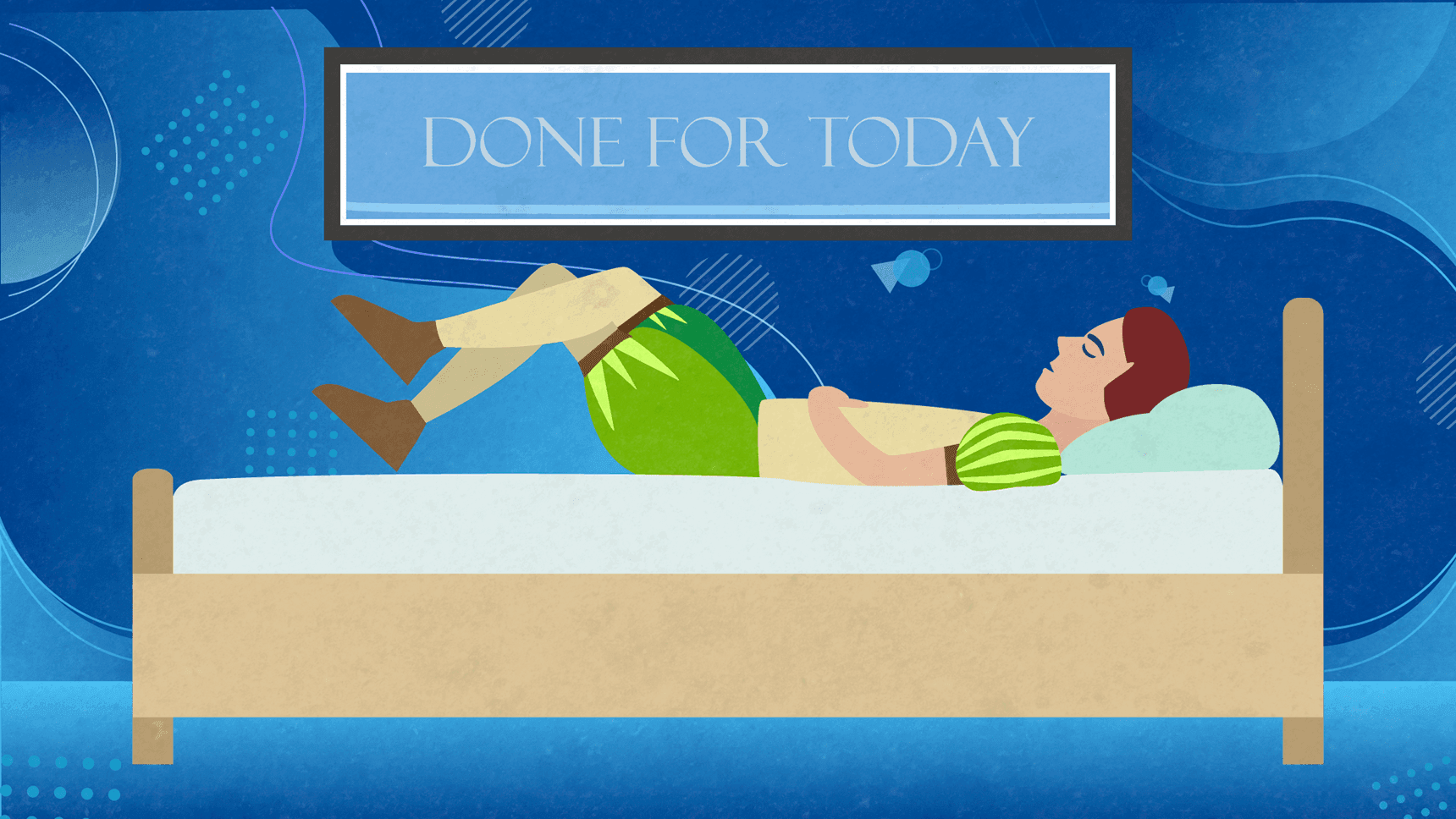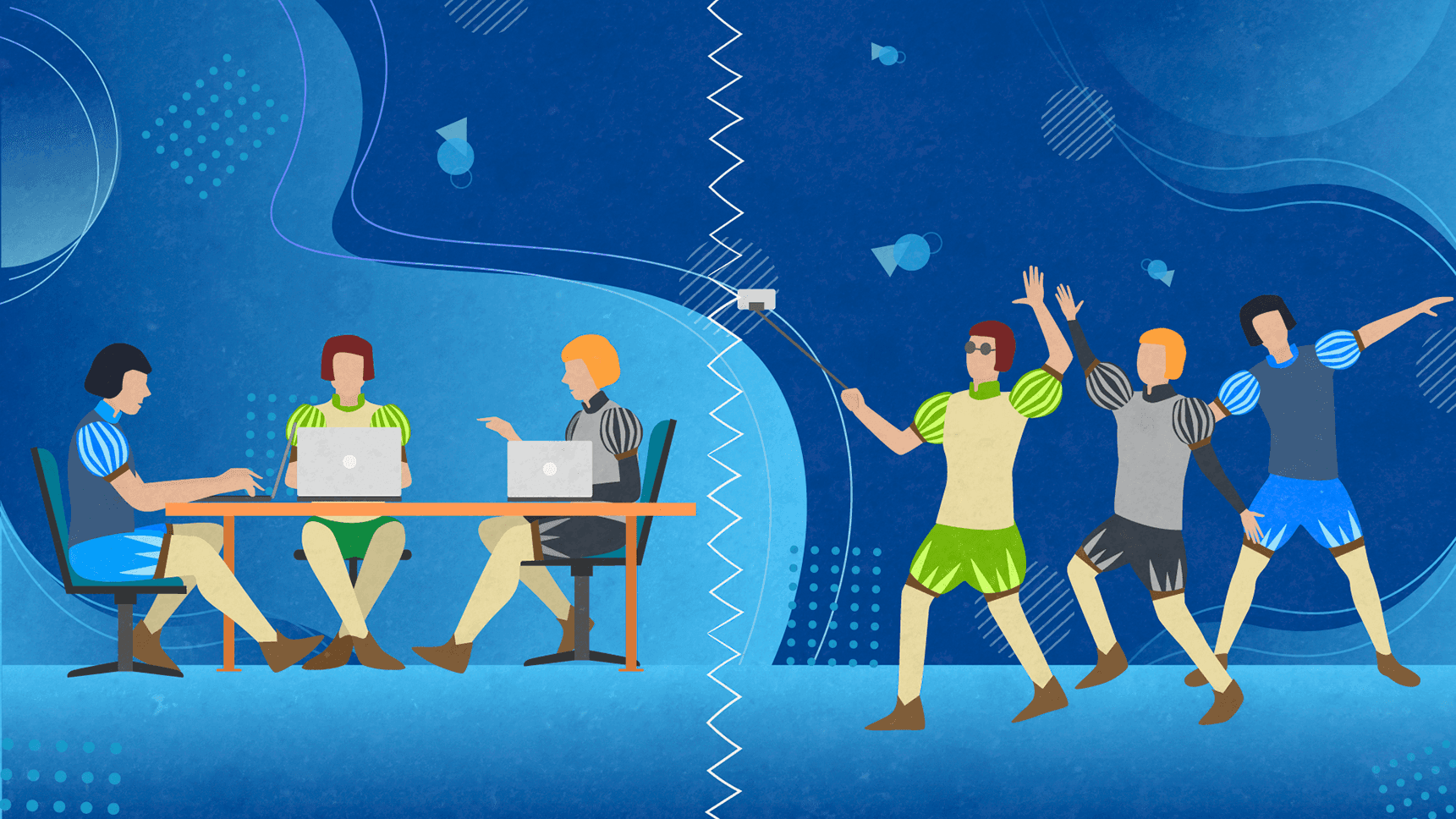Work-Life Balance: Learn How Share IT Operates as a Company

When it comes to mental health in the 21st century, the year 2019 will certainly be remembered as a crucial turning point. Namely, in May this year - the World Health Organization has officially recognized the burnout syndrome as a disease.
This decision was saluted by many because such a credible institution opened a long-awaited dialogue about modern health issues caused by stress, fast-paced way of life, and in particular - hostile and toxic work environments which take their toll on one’s well-being.
The burnout syndrome results from perpetual, chronic workplace stress, and is followed by feelings of exhaustion, negativism, and decreased everyday functionality. In most cases, employees suffer through an overwhelming amount of workload, unrealistic deadlines, continuous pressure, and are forced to work overtime.
At Share IT, we take the mental health of our employees very seriously and respect their private lives, aspirations, and in particular - their need for free time and rest. This is why we treat the work-life balance of each employee as sacred.
Want to know more about how this balance is preserved? Share IT’s CEO Stevan Bebic gives away some of the key insider info.
Working More Doesn’t Necessarily Mean Getting More Done
We all participate in a “hustle culture” where working 20 hours a day is celebrated and praised. The pressure to be an extraordinary working professional is high. People are always encouraged to work harder than it is considered to be healthy, and it is somewhat symptomatic of the Western society. In addition, getting over-invested in a job role might lead to other serious health problems such as depression.
Talking with Stevan, we were interested to find out more about what work-life balance means to him personally:
“As a very young parent, I can say that work-life balance is very important for me. I need time to spend with my wife and kids. In the context of my role as a CEO, family time is an essential part of my stress relief therapy. It helps me unwind, enjoy every moment, and pause for a bit. It is sort of like recharging for the next workday.”

Although some might not resist to stay a bit longer at work and get only one additional thing done within a single day, Stevan explains it’s actually a matter of self-discipline:
“My motto could be summed up like this: give 120% for 6h at work and go home, do not stay after hours, do not work from home. The truth is, when you are well-rested and feel fulfilled, it will have a huge impact on your work performance. Working more doesn’t necessarily result in getting more done. You have to really be there in order to be productive.”
This is absolutely true. In fact, researchers have noticed a trend related to this issue: many exhausted employees keep showing up at work, but they are not focused on their tasks. This phenomenon is called presenteeism and it’s costing companies billions of dollars a year. Needless to say, overworking people doesn’t lead to anything good. It can only backfire.
There is No Trick: Just Treat People Like Humans
We live in a world where companies, especially those operating in tech and IT, invest a lot of effort and money into creating various work benefits for their employees. You’re certainly familiar with the vivid startup environments that often include lazy bags and relaxation book corners, entertainment areas with throwing darts or table football, etc.
While these perks sound really peachy, it’s much more important to provide your employees with the fundamentals: normal working hours, healthy and supportive environment, team buildings, and paid fitness benefits.
Many managers make awful mistakes by treating serious underlying issues with instant solutions that only superficially address the true problem. That’s what spawned the famous pizza party meme, which makes you laugh and cry at the same time.
Stevan explained to us there really is no trick to it. Managers should treat their employees as humans and ensure their needs are covered:
“The workday needs to end at 4 PM. Share IT’s employees enjoy their one-hour lunch break every day and they cannot stay longer at work. It’s basically forbidden. In addition, the company offers a Fit Pass card, which is a fitness membership card that enables them access to more than 600 gyms and sports facilities. We fully support them in pursuing a healthy lifestyle.”

Creating a pleasant ambient that feels like home is a must, but business owners should never do it with an intention to disrupt the work-life balance. They shouldn’t offer it as an incentive and encourage employees to stay at the office longer.
As a CEO, It’s Your Job to Be at Disposal to Your People
While some CEOs might believe they should only direct business operations and not get involved too much with the procedures and operations, it’s a lot different when the company is smaller and the collective works much closer. Stevan is highly involved with everything that goes on in Share IT and he actually wears multiple hats:
“My typical workday is a bit chaotic. It starts by checking on all the employees and making sure they have everything they need to be productive. In case they need my assistance, I am there to jump in and help them immediately. Only then can I freely focus on my tasks that require switching between the roles of Project Manager, Developer, Account Manager, etc.”
Having a CEO who doesn’t just overlook what goes on from his ivory tower is certainly a positive boost for the company culture:
“Business owners rarely work until 4 PM and my case is no different. My working day usually doesn’t end until midnight, mainly because we have clients from different time zones. However, as I said before - this doesn’t disrupt my personal work-life balance. I don’t find this rhythm hard since after official working hours - my job is mostly to check emails and react immediately if the matter is urgent. Sometimes there are some after-hours meetings, but it’s really not that often.”
For Stevan, being there for the team is something that is understood. There is an organizational hierarchy, but it’s mostly in terms of decision-making and the level of responsibilities. People know they can be vocal about their ideas. Showing initiative is not looked down at. As Stevan explained:
“The most important thing for us is to maintain a positive and healthy work environment. We care about open and assertive communication as it ensures everything runs smoothly and everyone feels appreciated and heard. Employees are encouraged to provide feedback on various things, and this has proven to be a great way to improve our work processes and to improve overall performance. Diversity is great and from my experience - different people see things differently. Listening to what they have to say helps us cover all the angles.”
Amen to that. People need to feel good when they are at the office and never feel guilty about enjoying themselves after working hours.
Let People Be, Share and Encourage Success
Driven by good intentions, many companies find themselves on a slippery slope when trying to promote better work relationships and inspire team members to connect and bond. Instead of acting as catalysts, they actually force people to attend parties or team buildings, which tends to backfire. Stevan says this is not the case in Share IT:
“We all like hanging out and we get along really well. Share IT is a small company that gathers young, creative, smart and very talented professionals. More importantly, we are all team players. Also, it sort of happened that most of us are into sports, which is a pleasant thing to have in common. There is always something we all enjoy doing together. Usually, we spontaneously agree to meet up, but from time to time - the company hosts official team building events that require a bit of upfront organizing, and these are always really laid back and fun.”

We were also curious to find out more about the way Share IT measures business success and how do employees react to this. Stevan explained it would be crazy not to measure performance, but they never micromanage:
“I would be lying if I said we don’t measure success and that we do not have set goals. But it is more laid back compared to other companies. I feel that it’s important to give people room to be their best selves; that’s when you get the best results. Our primary business goal is to keep our clients happy. Right after that, we aim to grow steadily and healthily. Company success is not measured through income, but by looking at the number of new clients and new employees.”
Also, providing people with a chance to grow professionally is a great way to motivate them to look forward to each new workday. Exciting projects certainly make Mondays less mundane and help people feel satisfied at work:
“We are lucky to be in an industry where people are very competitive and always strive to be better than yesterday. Bearing that in mind, it’s not that hard to help our team move the bar a bit and always reach higher. We give them the means and the opportunity, and we are always there to help them overcome any obstacles. Ultimately, when you feel great and appreciated at work, you achieve the balance and enjoy life to the fullest.”
Thank you for reading our story about work-life balance in Share IT! We hope the story of our culture has inspired you and that you’ve learned a few new things. For more stories, check out Share IT’s blog.